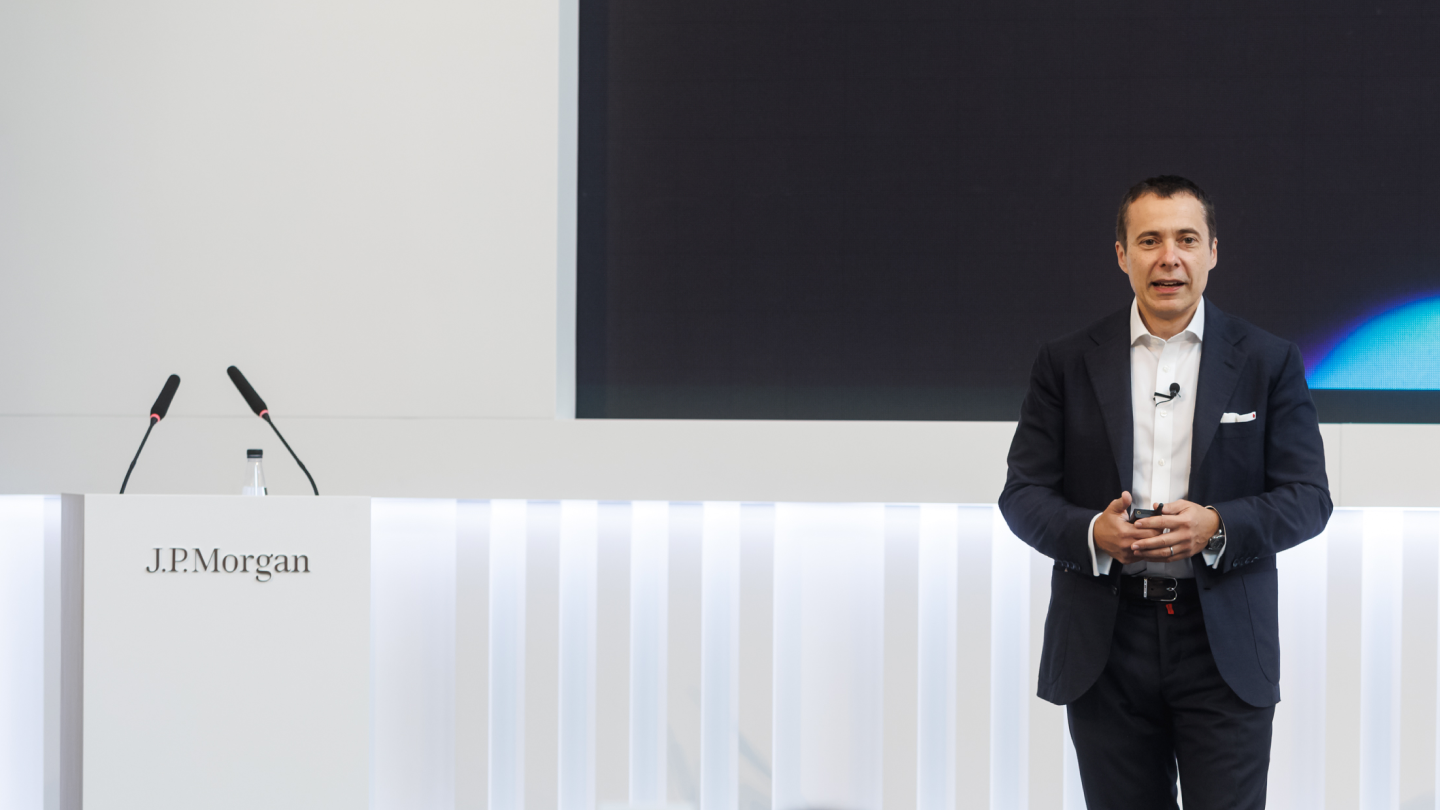
This interview was first published in China Trade Finance magazine.
Q. E-commerce is a key trend that is here to stay. How has J.P. Morgan helped clients on their e-commerce journeys?
We serve two main groups of clients.
First, there are the large e-commerce players that have already built out online marketplaces but need to better manage their e-commerce flows. To that end, we have introduced powerful payments solutions to help ensure 24/7 funding availability, while also helping our clients facilitate millions of low-value transactions to their suppliers around the world, including in China, using our Global Mass Pay solution, allowing payments to be made swiftly and with high straight through processing rates.
Then you have the traditional bricks-and-mortar companies with less of an online presence and over the past few years we have worked closely with these businesses to help them modernize their infrastructure and build not just their own proprietary marketplace but also to embed their offerings onto third-party marketplaces. We have also introduced APIs and machine learning to help companies digitize their end-to-end payments and treasury processes, so as to deliver a seamless e-commerce experience for their own consumers.
Q. In your view, what is the next big thing in payments? What are the opportunities for businesses?
There are two things worth calling out. First, there will be greater emphasis on the integration of online and offline experiences – or what we call the ‘omnichannel experience’. Consumers today want their shopping to be embedded into the experience they are having – whether in a store or on mobile – and they want the experience to be safe, secure and relevant.
Businesses will need to ensure a seamless cross-channel navigation that integrates a good checkout experience, the ability to support multiple currencies and payment types as well as to effectively use data to identify patterns and preferences, to deliver these personalized services for their consumers safely and securely.
The second is around ‘connected cars’. Just as the mobile phone became a key source of e-commerce and marketplace, we believe the connected car could serve as a marketplace and connector to multiple parties. For example, a driver – or passengers – can pre-purchase coffee or gas and even make restaurant reservations straight from their car dashboard.
And we believe this monetization will lead to opportunities beyond the auto industry; other related industries such as insurance, oil & gas, and retail will be able to leverage the connected car to help generate new revenue streams and business models.
So, I see payments playing a central role, with the ability to tie everything together no matter where commerce is taking place, and at J.P. Morgan, we continue to expand our payments offerings and invest at scale to not only keep up with the change but also lead the change.
Q. What are the biggest risks businesses face today and how is J.P. Morgan helping clients manage them?
I think global macroeconomic headwinds remain the biggest challenges for a lot of our clients. Most of them have global operations so FX volatility, higher cost of capital and inflationary pressures are significant risks for their businesses. Having sufficient liquidity is key to helping businesses navigate uncertainty and we continue to work closely with our clients to deploy solutions that help them optimize working capital and free up internal liquidity.
Many of our clients also manage large and complex supply chains, so having healthy supplier ecosystems amid all the disruption, is another key area of focus. This is where we see value from our global collaboration with Taulia, a leader in working capital solutions, where the proposition has helped our clients inject liquidity deep into their supply chains and provide alternative sources of cash to support their supplier ecosystems.
Q. Payments is becoming an increasingly competitive space. What differentiates J.P. Morgan?
We have three major advantages.
The first is that we are a leading bank with the full suite of capabilities to support the end-to-end flow – from cash in, cash managed, cash out – with the right liability structure, liquidity security and regulations. We also continue to innovate like a leading technology company with a large proportion of our $14 billion firmwide annual tech budget going into building new-generation solutions for our clients, but we do it with scale and appropriate controls.
Second, our consistency has earned the trust of our clients, and we are there for them in good and bad times. We move approximately $10 trillion in payments a day, and we continue to provide our clients – and their customers – with simple and secure ways to pay.
Third, our people. We have a dedicated, extremely talented, multi-disciplinary Payments team that is a part of JPMorgan Chase, and our unified approach helps provide unique value to our clients around the world.
Read the Chinese language version here
How is innovation shaping the future of payments? Read Payments Unbound here
Stay informed and stay ahead with our monthly newsletter
Receive key updates and news with relevant actionable insights and best practices — including the latest intelligence on payments trends, digital innovation, regulatory changes, ESG and sustainable financing and much more.
Subscribe to THE MONTH IN…Treasury & Payments
The views and opinions expressed herein are those of the author and do not necessarily reflect the views of J.P. Morgan, its affiliates, or its employees. The information set forth herein has been obtained or derived from sources believed
to be reliable. Neither the author nor J.P. Morgan makes any representations or warranties as to the information’s accuracy or completeness. The information contained herein has been provided solely for informational purposes and does
not constitute an offer, solicitation, advice or recommendation, to make any investment decisions or purchase any financial instruments, and may not be
construed as such.
JPMorgan Chase Bank, N.A. Member FDIC.
JPMorgan Chase Bank, N.A., organized under the laws of U.S.A. with limited liability.